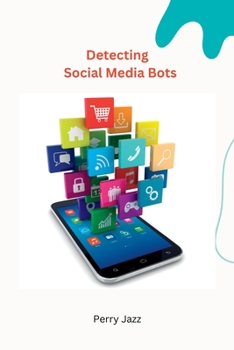Detecting Social Media Bots
Social media bot detection has a decade of history. According to Cresci et al. 15], the first social media bot detector was made by Yardi et al. 60] who tried to detect spammers on Twitter. In the early days, most detection methods were based on supervised machine learning algorithms, and the detection was based solely on the information of individual accounts. However, as time went by, bots became more sophisticated and coordinated. Distinguishing bots from real accounts became almost impossible for humans 19]. At this point, due to the unavailability of ground truth data and due to the coordinated bot behavior, researchers turned to other methods, namely, unsupervised machine learning algorithms. These detectors, focused on groups of accounts rather than individual ones and aimed at detecting accounts with similar behavioral patterns. The problem with the earlier described methods is that detectors are only created once new previously undetectable bots are discovered, leaving a significant life span for bots to operate. In order to solve this problem, researchers 17] today develop adversarial methods where they not only create detectors but also try to predict the evolution of bots to find vulnerabilities in their existing methods before they are exploited. In order to combat malicious social media bots several institutions and universities have organized bot detection competitions. DARPA was a bot detection competition organized in 2015 54] in order to test the effectiveness of influence bot detection methods. Recently the PAN 2019 Bots and Gender Profiling task has taken place, with the intention of using only the textual characteristics (Tweet) of social media accounts 46]. This has the advantage of creating platform-independent solutions as these methods do not rely on specific social media characteristics. The bookwork presented here will be based on the PAN 2019 Bots and Gender Profiling task will aim at improving the results of the existing solutions which will be discussed in more detail in the literature review.
Related Subjects
Business Business & Investing Engineering Self Help Self-Help Self-Help & Psychology Technology




